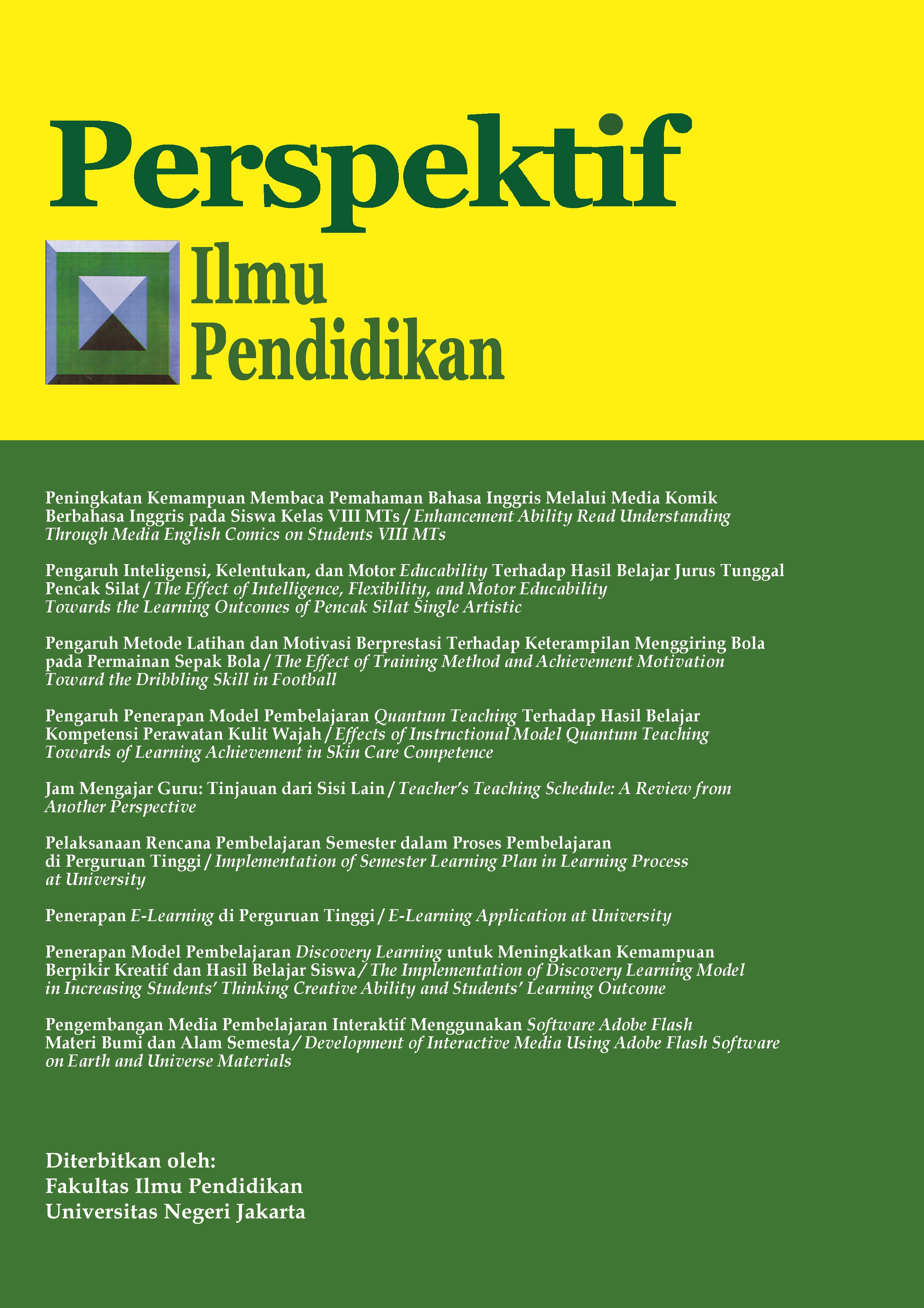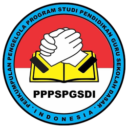JAM MENGAJAR GURU: TINJAUAN DARI SISI LAIN
DOI:
https://doi.org/10.21009/PIP.321.5Keywords:
teaching hours, professional allowances, continuing professional development, performanceAbstract
Regulations require teachers to meet the teaching burden of at minimum 24 hours / week and maximum 40 hours /week. However, in fact, for minimal hour's teaching, still many teachers who have not been able to fulfill it. The fulfillment of minimum obligations is a requirement for teachers to obtain Professional Teacher Allowances (TPG). Various ways have been attempted by interested parties, but the issue of teacher teaching hours is still problems. The fulfillment effort merely in terms of quantity, has not led to quality. For what teachers are forced to fulfill the obligation of teaching hours, e.g. by looking at other schools, being in the duties of the main school still indicates the achievement of the students' inadequate learning outcomes? Naturally if the fulfillment of obligations is not only in terms of quantity, but also quality. This means that the need to find an alternative fulfillment of teaching hours is functioning as a driver to improve the quality of teachers, so that a positive impact on improving student learning outcomes. With regard to the latter description that this paper is presented, that is to say, alternative thinking about the provisions of teaching hours teachers.
References
Agung, I. (2013). Penerapan sistem neuro associative conditioning (NAC) pada guru sebagai upaya meningkatkan mutu pendidikan. Jurnal Pendidikan dan Kebudayaan, 19(2), 297-304. doi: http://dx.doi.org/10.24832%2Fjpnk.v19i2.287
Agung, I. (2014). Kajian pengaruh kompetensi kepribadian dan sosial terhadap kinerja guru. Jurnal Ilmiah VISI, 9(2), 83-92. doi: https://doi.org/10.21009/JIV.0902.1
Agung, I. (2014). Panduan penelitian tindakan kelas bagi guru. Jakarta: Zikrul Bestari.
Agung, I. (2017). Guru yang kompeten dan profesional: Orasi ilmiah profesor riset. Jakarta: Balitbang-Kemendikbud.
Agung, I. (2018). Pengembangan keprofesian berkelanjutan (PKB) guru. Jakarta: Bee Media (akan beredar).
Barge. S. (2010). Principles of problem and project based learning: The aalborg PBL model. USA: Aalborg University.
Dalt, R. L. (2010). New era of management (era baru manajemen). Jakarta: Penerbit Salemba Empat.
De Graaf, E., & Kolmos, A. (2003). Characteristics of problem-based learning. The International Journal of Engineering Education, 19(5), 657 - 662.
Ditjen GTK. (2015). Hasil UKG guru tahun 2015. Jakarta: Kemendikbud.
Ditjen GTK. (2016). Program guru pembelajar. Jakarta: Kemendikbud.
Ditjen GTK. (2017). Data hasil pre-test dan post-test pelatihan guru pembelajar. Jakarta: Kemendikbud.
Ditjen Anggaran Kementerian Keuangan. (2015). Kajian tunjangan profesi guru. Kanalinfo.web.id. Diakses melalui https://www.kanalinfo.web.id/2016/03/tunjangan-profesi-guru.html)
Fiol, C. M. & Marjorie, A.L. (1985). Organizational learning. The Academy of Management Review, 10(4), 803-813. http://www.jstor.org/stable/258048
Hmelo-Silver, C.E. (2004). Problem based learning: What and how do student learn. Educational Psychology Review, 16(3), 235-266. doi: https://doi.org/10.1023/B:EDPR.0000034022.16470.f3
Lambros, A. (2004). Problem-based learning in middle and high school classrooms. CA: Corwin Press.
Leithwood, K., Leonard L., & Sharratt, L. (1998). Conditions fostering organizational learning in schools. Educational Administration Quarterly, 34(2), 243-276. doi: https://doi.org/10.1177%2F0013161X98034002005
Mangkunegara, A.A.A. P. (2010). Evaluasi kinerja SDM. Jakarta: Salemba Empat.
Marquardt, M.J. (1996). Building the learning organization. New York: McGraw-Hill.
Pedler, M. (1998). A concise guide to the learning organization. London: Publisher Lemos & Crane.
Puslitjak. (2013). Hasil penelitian jam mengajar guru. Jakarta: Balitbang-Kemendikbud.
Robins, S.P., & Judge, T.A. (1997). Organization behavior. New York: McGraw-Hill.
Rhem, J. (1998). Problem-based learning: An introduction. The National Teaching Learning Forum, 8(1), 1-7.
Senge, P.M. (1990). The fifth discipline the art and practice of the learning organization. New York: Doubleday.
Simatupang, B.M. (1995). ISO Seri 14000 dalam fokus organisasi belajar, manajemen & usahawan
Indonesia. Organisasi Belajar (Learning Organization), 11(XXIV).
Watkin, K. E.& Marsic, V.J. (1993). Sculpting the learning organization: Lessons in the art and science of systemic change. San Fransisco: Institue of Science Education.
Downloads
Published
How to Cite
Issue
Section
License
Authors who publish with this Journal agree to the following terms:
- Author retain copyright and grant the journal right of first publication with the work simultaneously licensed under a creative commons attribution licensethat allow others to share the work within an acknowledgement of the work’s authorship and initial publication of this journal.
- Authors are able to enter into separate, additional contractual arrangementfor the non-exclusive distribution of the journal’s published version of the work (e.g. acknowledgement of its initial publication in this journal).
- Authors are permitted and encouraged to post their work online(e.g. in institutional repositories or on their websites) prior to and during the submission process, as it can lead to productive exchanges, as well as earlier and greater citation of published works.
-
Users/public use of this website will be licensed to CC BY-NC-SA Creative Commons Attribution-NonCommercial-ShareAlike 4.0 International License












